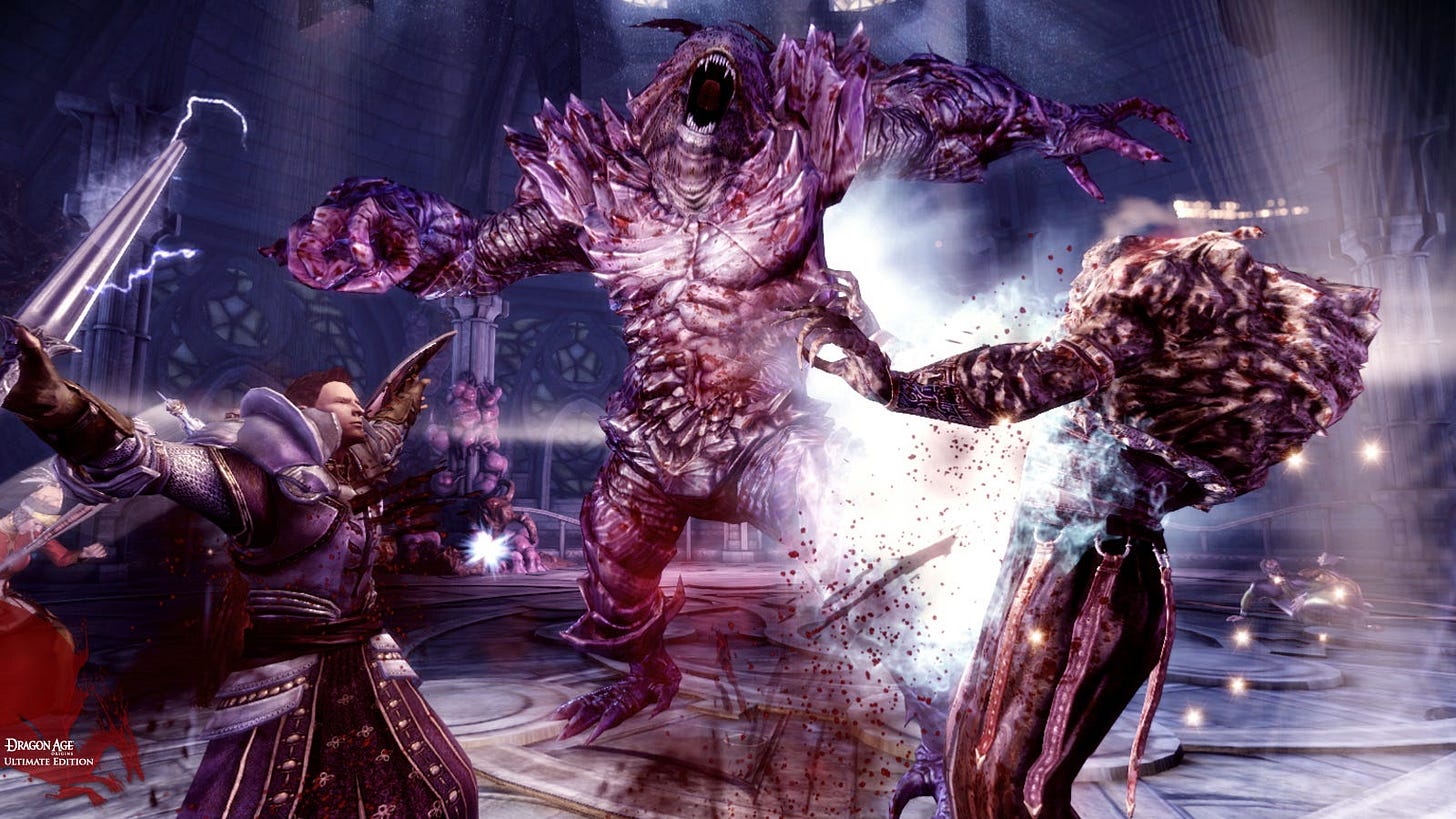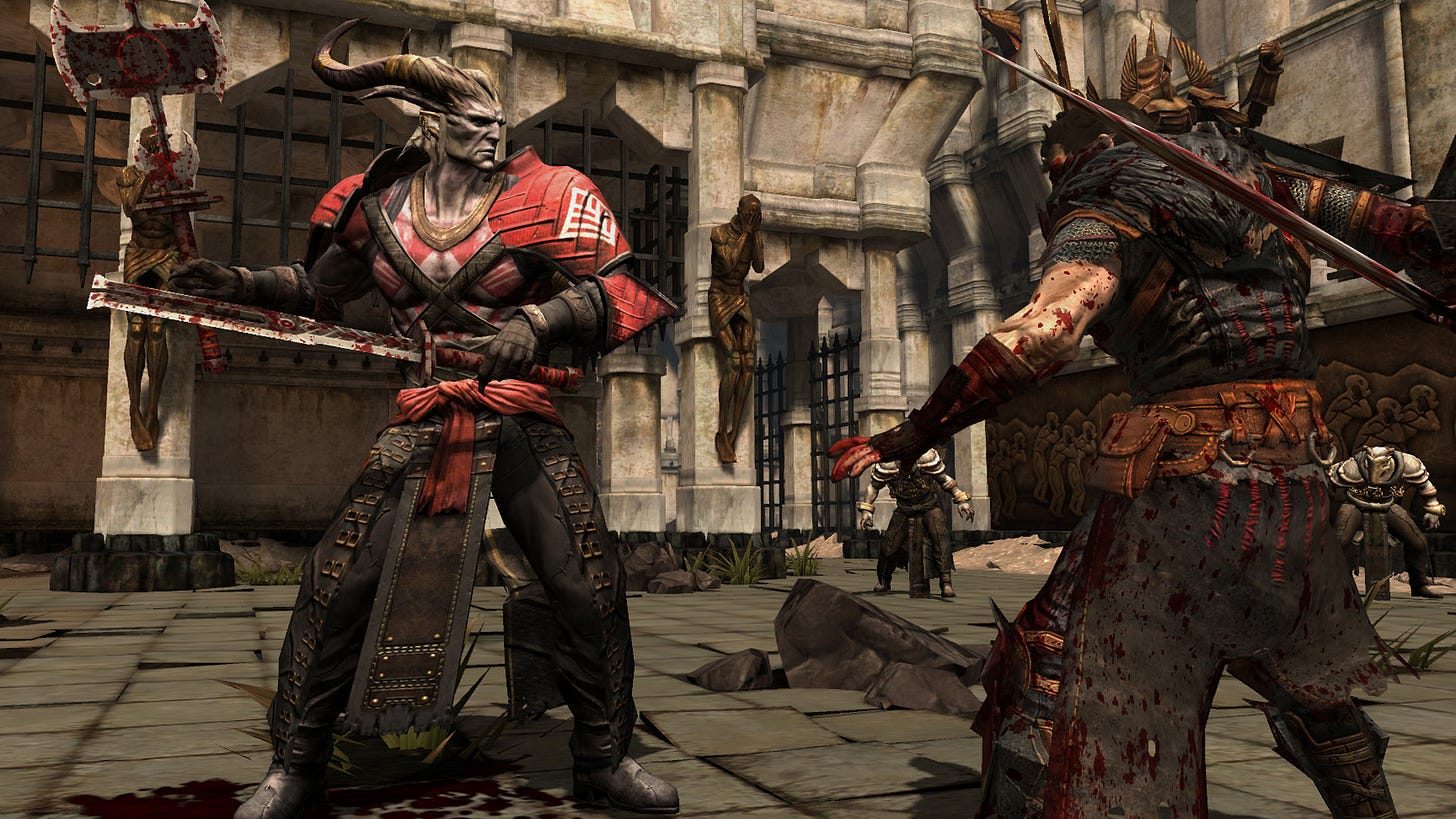Former 'Dragon Age' Lead Writer Warns Of "Anti-Fans" Wanting Games To Fail To Send Developers Lessons
David Gaidar, the former Lead Writer for Dragon Age warned about what he describes as “anti-fans” who want games to fail in order to send the developers and others like them a lesson.
Speaking to Games Radar, Gaidar broached the subject of anti-fans by specifically talking about the RPG audience. He said, “The RPG audience doesn't really agree with itself as to what an RPG requires. And they could get very loud. The difficulty is if, suddenly, you end up with anti-fans.”
“Then they turn from what you want, fans who would go out and spread word of your game and get people interested,” he elaborated. “But if you get anti-fans, they sort of do the opposite. They're very determined, suddenly, to see your game fail as sort of a lesson to others who would make games of the same type, right? And that, honestly, these days, there's some element of that present in almost all fandoms, but it's always sort of been there for RPGs in particular."
Gaidar went on to share that he believes some of this behavior comes from people making the video games they like part of their identity. He explained, “You also just get, I think, an element where more and more fandoms are making the things that they're fans of integral to their identity, and if it's integral to their identity, anything that affects it or insults it, insults them, you know what I mean?”
“So they are so invested in making it what they imagine that, like I said, if they turn into the anti-fan, suddenly it's their personal investment in seeing that fail, or seeing the developers who made that decision be punished, so that they could point in the future and say, 'Well, see what happened to them? See how their game sold? You don't want to do that, do you?' And even if they have to sort of manipulate the data or move the goal posts, it seems like it's become increasingly vital for these people to be able to run around and make their points online,” he continued. “To the point that I think a lot of developers, more and more, are kind of withdrawing from the public sphere. Because it feels like, sometimes, when I talk to other developers, it feels like familiarity breeds content. The more access they have directly to a developer, like a name they can attach.”
Much of Gaidar’s comments here are nonsensical, but at the heart of it he appears upset that gamers are not swallowing the next corporate product. He’s angry they are not adhering to the Code of the PopCult: Don’t ask questions just consume product and then get excited for next products.
As far as his comments about gamers wanting games to fail, this appears to be a new narrative in order to shame gamers. However, there is nothing wrong with wanting games to failed and in fact there is cause to rejoice in some of these games failing.
St. Thomas Aquinas addresses this in the Summa Theologiae Supplement to the Third Part in Question 94, which specifically asks, “Whether the blessed rejoice in the punishment of the wicked?”
He argues, “thing may be a matter of rejoicing in two ways. First directly, when one rejoices in a thing as such: and thus the saints will not rejoice in the punishment of the wicked. Secondly, indirectly, by reason namely of something annexed to it: and in this way the saints will rejoice in the punishment of the wicked, by considering therein the order of Divine justice and their own deliverance, which will fill them with joy. And thus the Divine justice and their own deliverance will be the direct cause of the joy of the blessed: while the punishment of the damned will cause it indirectly.”
He elaborates, “It is not praiseworthy in a wayfarer to rejoice in another's afflictions as such: yet it is praiseworthy if he rejoice in them as having something annexed. However it is not the same with a wayfarer as with a comprehensor, because in a wayfarer the passions often forestall the judgment of reason, and yet sometimes such passions are praiseworthy, as indicating the good disposition of the mind, as in the case of shame pity and repentance for evil: whereas in a comprehensor there can be no passion but such as follows the judgment of reason.”
In layman’s terms there is nothing wrong in wanting games to fail that promote objective evils such as transgender ideology like Dragon Age: The Veilguard.
What do you make of Gaidar’s comments?
NEXT: Former 'Dragon Age' Lead Writer Claims EA Wanted New Audience, Was Not Worried About RPG Players









At our restaurant, we have customers and anti-customers. A customer is a person who eats any old slop or even any substance of any kind on a plate. However, if you get an anti-customer, they make edible things part of their identity. When you serve them slop that gives them food poisoning, or you change your old menu of burgers and replace it with a menu of broken glass, they, they ... sort of go out of their way to, like, make people aware you serve broken glass. It's very frustrating.
Did he just discover one of the age-old marketing truisms? 'A satisfied customer will tell a friend about your product; an unhappy customer will tell nine.'
Well, congratulations, David, on finding out how customer-focused companies work. Better late than never, I guess. But you still have some way to go before you accept the reality for what it is without seeing it as a personal affront.